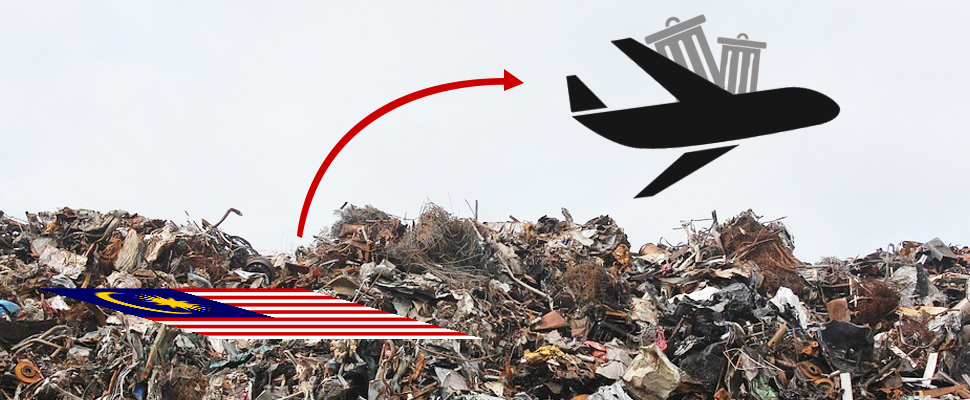Malaysia got tired of being the dump of the planet
Listen this article
"We urge the developed countries to stop sending their waste to our country," said the Minister of Energy, Environment and Sciences of the Asian nation.

After China stopped receiving plastics waste from foreign nations, Asian countries like Malaysia tried to occupy the space and the work that China had developed. However, on Tuesday, May 28, this country also announced that it will close the doors to waste from other nations and, in fact, will return hundreds of tons of plastic waste.
Leer en español: Malasia se cansó de ser el vertedero del planeta
Liu Hua, a Greenpeace researcher in East Asia, had warned that Malaysia and Vietnam did not have the capacity to deal with the amount of waste and waste they are receiving. According to AFP, since 2016, imports to this country tripled and reached 870 thousand tons of plastic.
Yeo Bee Yin, Minister of Energy, Environment and Science, said: "We urge the developed countries to stop sending their waste to our country". The official also said that "we are going to return them to their countries of origin," after several contaminated plastic containers were inspected in Port Klang.
According to AsiaOne, the waste disposal in Malaysia has led to the creation of recycling plants that operate without a license and that do not comply with environmental care standards. This results in the environmental detriment of Malaysia. The same means ensures that the plastic that will be returned comes from Canada, Australia, Japan, Saudi Arabia, China, Bangladesh and the United States. The plastic would be contaminated and 450 tons would be returned to their countries of origin. Last month, Malaysia already returned five containers to Spain.
Read also: The world screams for the extinction of plastic
The decision is made because the plastic that arrived at the port cannot be recycled because it is not homogeneous, it is of low quality and it is highly contaminated. Processing that type of material without adequate technology produces more pollution that ends up affecting the health of Malaysian residents. This nation got tired of being the global plastic dump.
Global crisis due to plastic
Malaysia's decision reflects the environmental and political crisis facing the planet through plastic. The big nations that produce plastic waste have not found an effective solution to treat their waste.
You may be interested: Sustainable agriculture: this is how Orinoquia's production will be
For years, China took care of the garbage of the great nations. However, by deciding not to accept more imports, the world was forced to look for other dumps. Instead of finding sustainable and friendly alternatives for host nations, the problem has worsened and evidence of them is Malaysia's decision.
The solution is not only about recycling, but about slowing down the production of plastic. Developed and developing nations must find a way to attack the root problem in order to control the hundreds of tons of plastic produced.
LatinAmerican Post | Marcela Peñaloza
Translated from "Malasia se cansó de ser el vertedero del planeta"





